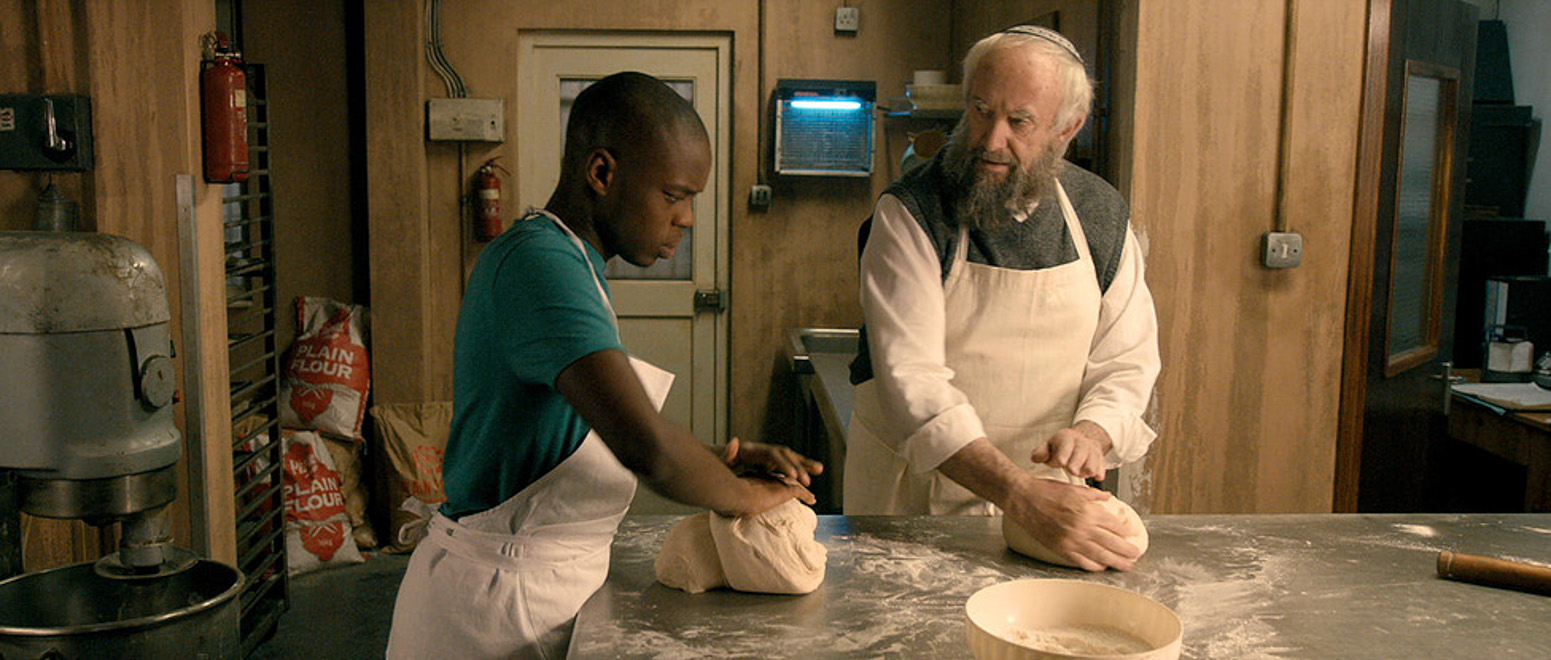While functioning primarily as a lighthearted comedy, “Dough” attempts to add another voice to the discussion of immigration in Europe. It centers around the interaction between two men – one an elderly Jewish baker, the other a teenage immigrant from Darfur. Together, they run a bakery in England, with the teenager serving as the baker’s apprentice. The film falls victim to the use of stereotypes, but seems self-aware about their use. Overall, however, “Dough” fails to make any startling revelation about the nature of religious or ethnic conflict. It’s the kind of movie that the belongs at a matinee.
Ayyash (Jerome Holder) lives in an apartment with his mother, washing car windows by day and club-hoppping at night. He desperately wants to sell drugs for the local kingpin, but is told that he needs to find a “cover job” before being hired. His mother works at a local Jewish bakery, so when an apprenticeship opens, Ayyash nabs the position. Nat (Jonathan Pryce) is an elderly baker stuck in his ways. He chooses “Singin’ in the Rain” for every movie night with his friend. His wife recently died, so he spends most of the film looking disheveled.
Immediately, the religious differences between Jewish Nat and Muslim Ayyash are boringly addressed. Both express stereotypes about the other group, and the film feels the need to spell out all the religious and ethnic differences between the two men. There is nothing novel about mistaking Ayyash for being Arab or Nat’s son pursuing a career in law.
Ayyash is eventually hired to deal pot, and the film finally picks up when he spills it into some dough. Nat’s family enjoys some special challah at dinner that evening, and soon Ayyash realizes that he can use the store to sell the weed he has acquired. Soon they are baking pot into the pastries, and they have a line out the door.
When Ayyash’s apartment floods, Nat takes in Ayyash and his mother into his own home. This is heartwarming, but not particularly engaging. Predictably, there’s a conflict with a competing store owner trying to run Nat and Ayyash out of the market. Nat must eventually find out that Ayyash has been adding extra ingredients to the dough. All of this is a clear attempt to invigorate a pat, predictable plot.
“Dough” quickly moves from commenting on the relationship between ethnic and religious groups to focusing on old-people humor. It is filled with jokes about learning from the Internet rather than books, or learning how to use a computer in the first place. It is innocently entertaining, succeeds in creating some heartwarming moments and uses religious differences as a device for humor more than as a serious commentary. My grandparents would have enjoyed every minute.
Contact Reed Canaan at rcanaan ‘at’ stanford.edu
